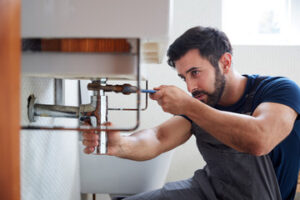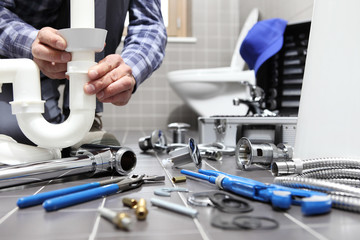The Expertise and Value of Professional Plumbers
Plumbers in Plano play a crucial role in maintaining modern infrastructure. They ensure the proper flow of clean water and the safe disposal of waste. Their expertise keeps homes and businesses running smoothly. Without them, essential daily functions would be compromised.
Plumbers are skilled professionals trained to handle complex systems. They understand water pressure, pipe materials, and drainage mechanics. Their knowledge allows them to diagnose and fix issues efficiently. Proper training ensures they meet safety and performance standards.
Installing plumbing systems requires precision and attention to detail. Plumbers measure and cut pipes to fit exact specifications. Secure connections prevent leaks and water damage. Proper installation ensures long-term system integrity.
Repairing leaks involves identifying the source and fixing it quickly. Hidden leaks can cause structural damage and mold growth. Plumbers use specialized tools to locate and seal leaks. Quick action prevents costly repairs and property damage.
Drainage issues often stem from blockages and improper slope. Plumbers clear clogs using drain snakes and hydro-jetting. They adjust pipe angles to improve drainage flow. Effective solutions restore proper water movement.
Water pressure problems require careful adjustments. Low pressure may indicate pipe obstructions or valve issues. High pressure can strain pipes and fixtures. Plumbers balance pressure to protect the system and improve performance.
Hot water systems need proper installation and maintenance. Water heaters must be sized correctly for household demand. Plumbers install pressure relief valves and insulation to improve efficiency. Regular maintenance extends the life of heating systems.
Backflow prevention protects clean water from contamination. Cross-connections between potable and wastewater systems create risk. Plumbers install check valves and air gaps to prevent backflow. Compliance with safety codes ensures clean water supply.
Pipe materials vary based on application and environmental factors. Copper, PVC, and PEX each have specific advantages. Plumbers select materials based on pressure tolerance and corrosion resistance. Proper material choice ensures system durability.
Fixture installation requires secure connections and sealing. Faucets, sinks, and toilets must align with supply and drainage lines. Plumbers use sealing compounds to prevent leaks. Proper installation ensures reliable fixture operation.
Septic system maintenance is essential for waste management. Tanks separate solids from liquids, allowing natural breakdown. Plumbers inspect and pump tanks to prevent overflow. Proper care extends the lifespan of septic systems.
Stormwater management prevents flooding and foundation damage. Plumbers design gutter systems to direct rainwater away from structures. Proper grading and pipe placement control water flow. Effective management protects property and infrastructure.
Frozen pipes pose a threat in cold weather. Expanding ice can crack or burst pipes. Plumbers install insulation and heat tracing to prevent freezing. Thawing techniques prevent further damage.
Water filtration improves taste and safety. Filters remove sediment, chlorine, and contaminants. Reverse osmosis and carbon filtration enhance water quality. Regular filter replacement ensures consistent performance.
Gas plumbing requires careful handling and safety precautions. Plumbers install gas lines with proper sealing and pressure regulation. Gas appliances require specific venting and safety controls. Regular inspections prevent leaks and hazards.
Emergency plumbing services address urgent issues. Burst pipes and severe leaks require immediate attention. Plumbers carry specialized tools to handle emergencies. Fast response minimizes damage and repair costs.
Renovations often require plumbing upgrades. Existing systems must be assessed for capacity and compatibility. Plumbers reroute pipes and update fixtures to meet modern standards. Proper upgrades improve system efficiency and longevity.
Commercial plumbing systems handle higher water volumes and pressure. Larger pipes and fixtures withstand increased demand. Plumbers design systems to balance pressure and drainage capacity. Regular maintenance prevents downtime and costly repairs.
Medical and laboratory plumbing requires sterile and reliable systems. Special materials resist corrosion and contamination. Backflow prevention and filtration protect water quality. Proper installation ensures safety and regulatory compliance.
Fire sprinkler systems depend on pressurized water lines. Plumbers install pipes and sprinkler heads according to code. Proper pipe sizing and pressure regulation ensure even coverage. Routine testing ensures reliable operation during emergencies.
Multi-story buildings require pressure balancing and drainage planning. Pumps and pressure-reducing valves maintain consistent flow. Venting systems prevent airlocks and drainage issues. Skilled plumbers design systems for balanced performance.
Historical buildings require careful plumbing restoration. Original materials and designs must be preserved. Plumbers upgrade systems without damaging architectural integrity. Modern performance combines with historical preservation.
Plumbing for green buildings emphasizes water conservation. Low-flow fixtures and greywater recycling reduce water use. Rainwater harvesting systems provide alternative water sources. Sustainable plumbing lowers environmental impact and utility costs.
Automation improves plumbing efficiency and monitoring. Smart leak detectors and pressure sensors provide real-time alerts. Automated shut-off valves prevent flooding and water waste. Remote monitoring ensures quick response to issues.
Agricultural plumbing supports irrigation and waste management. Drip and spray irrigation improve water distribution. Plumbers install and maintain pressure regulators and filtration systems. Efficient plumbing supports crop health and yield.
Plumbing for food and beverage production requires sanitary systems. Stainless steel pipes resist corrosion and contamination. Plumbers install and maintain backflow preventers and filters. Consistent water quality supports production standards.
Underfloor heating systems require precise pipe placement. Hot water circulates through embedded pipes. Plumbers balance pressure and flow for even heating. Insulation improves efficiency and heat retention.
Outdoor plumbing includes irrigation and pool systems. Plumbers install pipes and valves to withstand weather conditions. Freeze protection and drainage prevent damage. Proper installation supports reliable outdoor functionality.
Plumbers use advanced technology for leak detection. Thermal imaging and acoustic sensors locate hidden leaks. Early detection prevents water waste and structural damage. Non-invasive methods reduce repair costs and disruption.
Water softening reduces mineral buildup in pipes and fixtures. Hard water causes scaling and reduces flow. Plumbers install softeners to exchange minerals with sodium or potassium. Reduced scaling improves system longevity and efficiency.
Plumbing inspections reveal hidden issues before they worsen. Pressure tests and camera inspections identify leaks and blockages. Preventative maintenance reduces repair costs and extends system life. Early repairs prevent major system failures.
Plumbing for heating systems includes radiators and hot water circulation. Plumbers install pressure-regulated valves and insulated pipes. Proper balancing ensures even heating and energy efficiency. Regular maintenance prevents heat loss and system breakdown.
Industrial plumbing requires specialized materials and design. High-pressure systems and chemical exposure demand durable pipes and fittings. Plumbers install and maintain systems according to industry standards. Proper design ensures safety and performance.
Plumbing for recreational facilities includes pools, spas, and water features. Filtration and circulation systems maintain water quality. Proper chemical balance prevents corrosion and contamination. Skilled installation ensures reliable performance.
Plumbing codes and regulations protect public health and safety. Plumbers follow local and national standards for installation and repair. Compliance ensures system reliability and water quality. Regular updates keep systems within regulatory requirements.
Plumbers balance technical expertise with problem-solving skills. Diagnosing complex issues requires analytical thinking. Effective communication ensures clients understand repair options and solutions. Professionalism and reliability build client trust.
Plumbers play a vital role in infrastructure and daily life. Their expertise ensures the safe delivery of clean water and efficient waste removal. Skilled installation and repair prevent costly issues and maintain system performance. Professional plumbers uphold safety, health, and efficiency standards.

